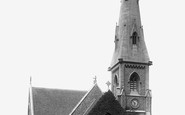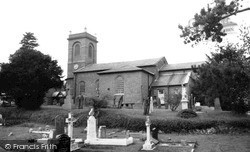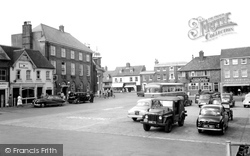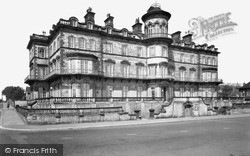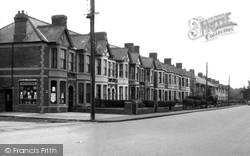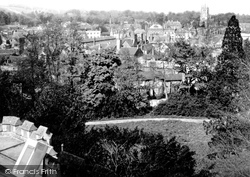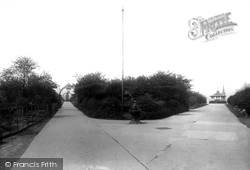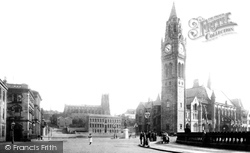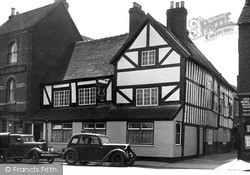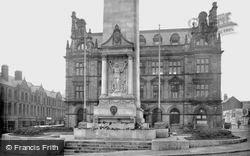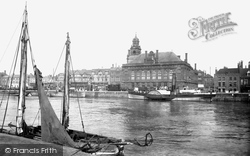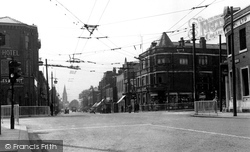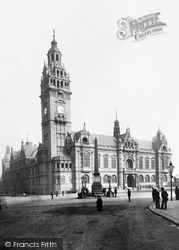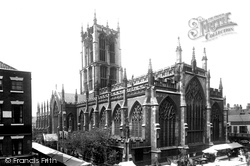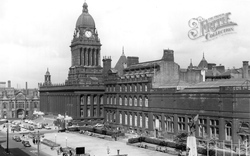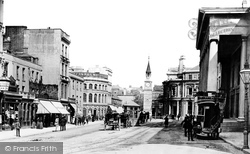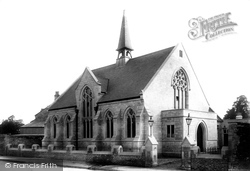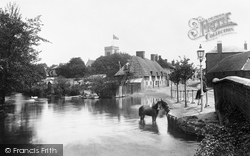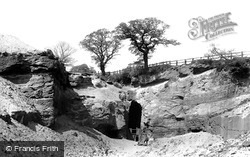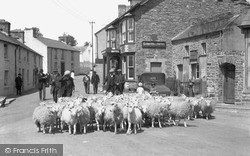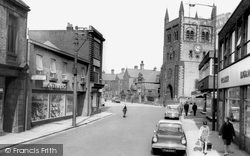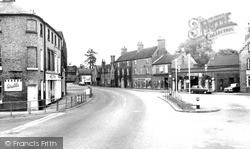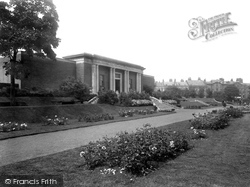Merry Christmas & Happy New Year!
Christmas Deliveries: If you placed an order on or before midday on Friday 19th December for Christmas delivery it was despatched before the Royal Mail or Parcel Force deadline and therefore should be received in time for Christmas. Orders placed after midday on Friday 19th December will be delivered in the New Year.
Please Note: Our offices and factory are now closed until Monday 5th January when we will be pleased to deal with any queries that have arisen during the holiday period.
During the holiday our Gift Cards may still be ordered for any last minute orders and will be sent automatically by email direct to your recipient - see here: Gift Cards
Places
26 places found.
Those places high-lighted have photos. All locations may have maps, books and memories.
- Town End, Derbyshire
- Town End, Buckinghamshire
- Town's End, Somerset
- Towns End, Dorset
- Town End, Merseyside
- Town End, Cambridgeshire
- Town's End, Buckinghamshire
- West End Town, Northumberland
- Bolton Town End, Lancashire
- Kearby Town End, Yorkshire
- Town End, Cumbria (near Grange-Over-Sands)
- Town End, Cumbria (near Bowness-On-Windermere)
- Town End, Yorkshire (near Huddersfield)
- Town End, Yorkshire (near Wilberfoss)
- Town End, Cumbria (near Appleby-in-Westmorland)
- Town's End, Dorset (near Melbury Osmond)
- Town's End, Dorset (near Swanage)
- Town End, Cumbria (near Ambleside)
- Town End, Cumbria (near Lakeside)
- Town End, Cumbria (near Kirkby Lonsdale)
- Town End, Cumbria (near Ambleside)
- Town's End, Dorset (near Bere Regis)
- West-end Town, South Glamorgan
- Townend, Derbyshire
- Townend, Strathclyde (near Dumbarton)
- Townend, Staffordshire (near Stone)
Photos
26 photos found. Showing results 2,761 to 26.
Maps
195 maps found.
Books
160 books found. Showing results 3,313 to 3,336.
Memories
3,720 memories found. Showing results 1,381 to 1,390.
Changing Times
We moved to Frimley from Sutton as part of the London overspill. I was 2 when we moved into a house in Ansell Road. I remember my childhood with fond memories. I remember an old pig sty where Stonehouse Rise is now, I had some great ...Read more
A memory of Frimley in 1961 by
Acton The Good Old Days
We moved down to Acton from Stafford in the midlands in 1949 when I was 4 years old. We were given a flat in The Vale, my first school was East Acton infants up East Acton lane, a cracking little school. I was very happy ...Read more
A memory of Acton in 1960 by
Beginning In Fenham Barracks
We arrived in Newcastle in September 1955, from Malay, (Malaysia) where we were housed in that fortification of red brick buildings: Fenham Barracks. After a couple of weeks I eventually became acclimatised ...Read more
A memory of Newcastle upon Tyne in 1954
Top End Of Gilfach Goch
My maternal grandparents lived in Talbot House at the end of Scotch and Pritchard Row (Elizabeth and George Reed) my paternal grandmother lived in Blandy Terrace Robert (dec'd) and Mary Elizabeth Stephens. I used to ...Read more
A memory of Gilfach Goch in 1955 by
I, Too, Was A Choirboy At St John's
I first attended St John's in around 1958 as a Cub Scout and attended the children's Sunday service at, ISTR, 9.40. The 'grown-ups' service at 11.00 seemed very serious to me as an 8 year old! I can't remember how I ...Read more
A memory of Hove in 1959 by
Hesleden In The 1950s 1960s
I've visited the old place several times and where I was born and lived has gone! I was born at no.1 West Terrace in 1950, then moved across the road to Gladstone house on Station Road. My dad, Reg Wright, had a ...Read more
A memory of Hesleden in 1950 by
Happy Days
My memories of growing up in Haslingden are happy. I loved where we lived on Lime Road. My dear friend lived on Hillside Road. What joy we had. We used to play in the valley or go to the local cinema. I still love the movies. I went ...Read more
A memory of Haslingden in 1957 by
Caversham
I went to the Hill primary school and then to Caversham secondary modern school. I left there in 1963. I lived at Kings Road. We used to play down the rec and view island. We would play skipping and marbles in the street, there were ...Read more
A memory of Caversham by
Growing Up In Kirkdale
I was one year old when we moved to Kirkdale, that was 1956, we moved to 82 Brasenose Road from Huyton with Roby so all my childhood memories were about growing up in Kirkdale. We had nothing but we were happy. There was ...Read more
A memory of Liverpool in 1960 by
Happy Holidays
Every year when I was growing up (I'll be 45 in Sept) my family spent our holidays at Eastchurch farm, Hittisleigh. We knew we were close to arriving when we got to Whiddon Down. My memories of Whiddon Down are of myself and ...Read more
A memory of Whiddon Down by
Captions
5,111 captions found. Showing results 3,313 to 3,336.
St Mary's Church was built in 1827-28 and was designed by George Latham, who lived in Nantwich.
Petersfield is a true market town, for markets are still held here on Wednesdays and Saturdays.
The Stockton and Darlington Railway Company built the Zetland Hotel as a flagship project, hoping to attract other developers to the town as the concept of a new spa resort was being pursued.
Major improvements in transport facilities around 1890 put the industries of Barry and Cardiff in easy reach for the first time.
Slightly to the left is Brownston House, one of only two Grade I listed buildings in town. It was originally built in 1700, but was rebuilt later in 1720.
In 1893, a study by a German sociologist found that six out of every seven working-class families in the mill towns of Lancashire and Yorkshire managed to save enough money to spend on a holiday.The
Today this road has far more traffic than a solitary horse and cart. The buildings on the right stand at the junction with Belmont Road, and are now the Belmont Inn.
The statue cost £2,000 and was unveiled on 24 October 1891; it stood close to the Town Hall, whose foundation stone Bright had laid 25 years earlier.
The Old Talbot was built in 1527, and is reputed to be the oldest building in Uttoxeter. It survived two fires which badly damaged the town in 1596 and 1672.
It was designed by the grandson of Sir Gilbert Scott, who had designed Preston Town Hall.
A solid example of Victorian civic architecture, Yarmouth Town Hall stands squarely alongside the quay. A paddle steamer, crowded with holidaymakers, awaits more passengers.
By the time this picture was taken, the tram routes through Denton had been converted to trolley and petrol bus operations.
The gabled Renaissance-style Town Hall, built on the corner of Pinstone Street and Surrey Street, was designed by E W Mountford and completed in 1896; its official opening by Queen Victoria took place
Two ancient churches occupy sites in the Old Town: St Mary's in nearby Lowgate, and the Church of the Holy Trinity, shown here with its attendant market stalls.
When this picture was taken, the town hall, with its 225 ft tower and spectacular frontage of giant columns and pilasters, was in desperate need of a good clean to rid it of decades of soot and grime.
Much of old Plymouth town was destroyed, irreplaceable old buildings were lost, and street patterns were changed with the rebuilding.
Much of old Plymouth town was destroyed, irreplaceable old buildings were lost, and street patterns were changed with the rebuilding.
Now called St Aldhelm's Methodist Reformed Church, this lovely little building stands alongside and open to a busy street near Corsham town centre.
Ringwood's market brought country folk from far and wide to the town with their goods, and the market became famous for the sale of New Forest ponies.
Copper (and also, to a lesser degree, lead) have been mined here since Roman times, so that the whole area of hillside behind the town is said to have dozens of pits, caves and tunnels.
Although flocks of sheep and herds of cattle no longer congregated at Tregaron ready for the walk to England, the town continued to serve as a market place for livestock for many years.
In 1831 there were only 150 people living in and around Consett.
East of Lincoln, Wragby is a market town on the Horncastle and Skegness road which is very busy at weekends and in summer.
The Town Council has its office here, and it also contains Whitby Museum, renowned for its collection of extant fossils, which is run by the Literary and Philosophy Society, colloquially
Places (26)
Photos (26)
Memories (3720)
Books (160)
Maps (195)

